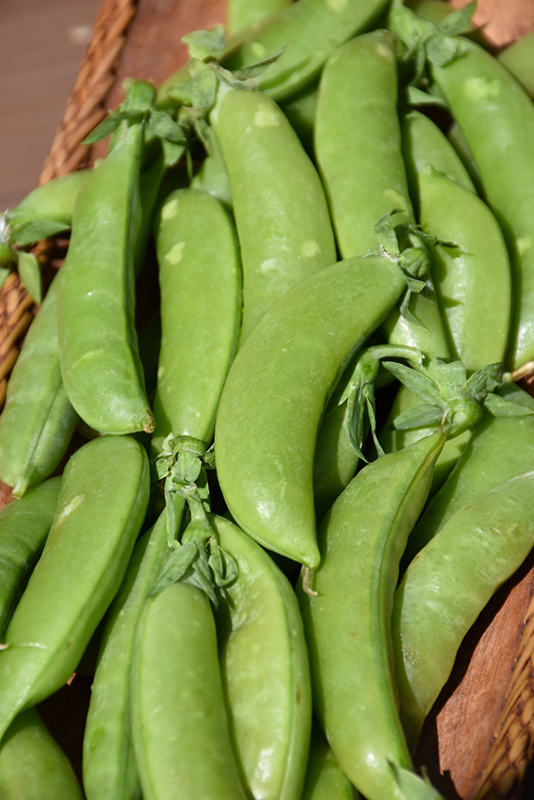Plant Library
Sugar Snap Pea
Pisum sativum var. saccharatum 'Sugar Snap'
Height: 6 feet
Spacing: 24 inches
Sunlight:
![]()
![]()
Hardiness Zone: (annual)
Description:
A perfect selection for any garden or large container; this variety produces round, fleshy walled pods that are sweet, juicy, crisp and crunchy; from fresh eating off the vine to cooking or freezing, these tasty treats are perfect for many dishes
Edible Qualities
Sugar Snap Pea is an annual vegetable plant that is commonly grown for its edible qualities. The entire above-ground parts of the plant are edible, and are typically harvested when mature. The edible parts have a sweet taste and a crisp texture.
The plant is most often used in the following ways:
- Fresh Eating
- Eating When Cooked/Prepared
- Cooking
- Baking
- Freezing
Planting & Growing
Sugar Snap Pea will grow to be about 6 feet tall at maturity, with a spread of 24 inches. When planted in rows, individual plants should be spaced approximately 24 inches apart. Because of its vigorous growth habit, it may require staking or supplemental support. This fast-growing vegetable plant is an annual, which means that it will grow for one season in your garden and then die after producing a crop.
This plant is typically grown in a designated vegetable garden. It does best in full sun to partial shade. It does best in average to evenly moist conditions, but will not tolerate standing water. It is not particular as to soil pH, but grows best in rich soils. It is somewhat tolerant of urban pollution. Consider applying a thick mulch around the root zone over the growing season to conserve soil moisture. This is a selected variety of a species not originally from North America, and it is considered by many to be an heirloom variety.
Sugar Snap Pea is a good choice for the vegetable garden, but it is also well-suited for use in outdoor pots and containers. With its upright habit of growth, it is best suited for use as a 'thriller' in the 'spiller-thriller-filler' container combination; plant it near the center of the pot, surrounded by smaller plants and those that spill over the edges. It is even sizeable enough that it can be grown alone in a suitable container. Note that when growing plants in outdoor containers and baskets, they may require more frequent waterings than they would in the yard or garden.





